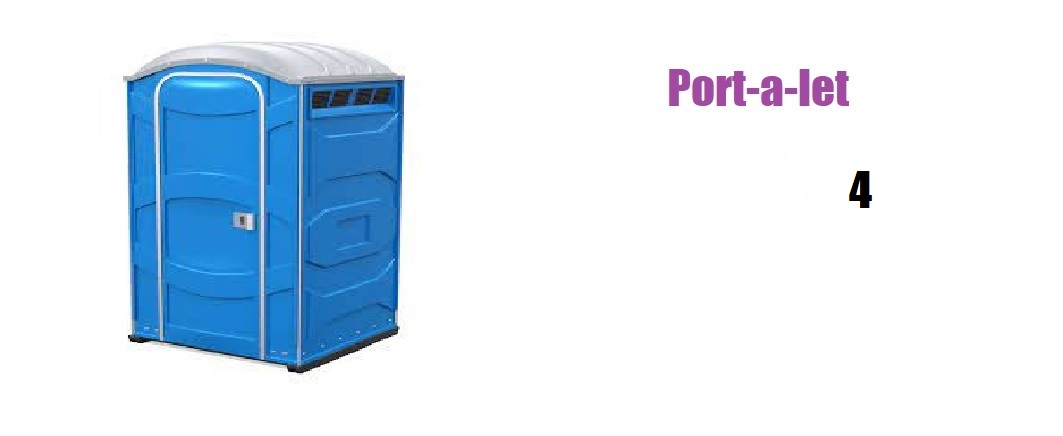Port-a-let (Part 4)
Jones drove slowly into Warrenton, sandwiched between RVs, and he and Michael talked about yet another round of new curriculum mandates from the state, including a requirement that all U.S. history teachers cover the Irish potato famine. They laughed about that mandate until a disorganized legislature of Western gulls appeared in the sky, now four shades of gray and no longer neatly stacked upon one another, but rather in jagged parallel. One of the gulls landed on a silver and maroon RV, the Arctic Trekker, and Michael let out a shriek of delight. The gull looked right at her and she had it rendered in less than a minute. “He’s got a nick over his left eye, did you see that?” she said.
Jones saw it. It seemed like all the gulls on the Oregon Coast had a nick here or a ding there. More than a few had only one pink leg and apparent scorch marks on their feathers. They had survived by adjusting, adapting, and they knew how to ride the wind.
A thrift store came into view and Michael suggested they stop and investigate. Who knows what golden kitsch they might discover inside she said. Just to discover a new variation of Oregon Coast mold excited her even more. As Michael delineated the various mold smells she’d encountered since moving to Astoria, it occurred to Jones that for the first time in his life he was in the company of someone who perceived life through all the senses.
They entered the thrift store’s wine cellar doors and sleigh bells jingled. They walked into one cavernous room, a hangar really, packed to the rafters with more merchandise than Jones had ever seen in any thrift store in Oregon. No one was there, not even a stoned proprietor. A few feet inside, Michael stopped Jones short, palming his chest with her left hand, and made an exaggerated gesture like she was taking a drag off a joint, smoking a new strain of mold.
“Let’s find each other something indigenous coastal,” she said. We’ve got 15 minutes. What do you think?”
It was about the best collaborative idea Jones had heard in his life.
For a minute they walked silently together, past the tables of ancient farm implements, around decrepit wardrobes full of forlorn holiday decorations. They stopped at the threshold of the book department. All bibliophiles had to do was step across a tiny meandering trench in the floor and they could avail themselves of the most heaving, mismatched, misfit, beguiling, obscure collection of books, pamphlets, government documents, and historical ephemera in Oregon, if not the world. Most of everything had no price and speckles of mold somewhere. Long ago, some fisher poet with writer’s block had jackhammered a trench from the floor to channel the rivulet that coursed through the hangar whether it rained or not. At times, during high flows, even tiny fish and crustaceans might float their way through the store.
Fifteen seconds after crossing the rivulet, Jones and Michael parted without saying a word. He hustled to the novels and Michael followed the water to the poetry.
An hour later they met at the front counter, each with a book. The proprietor still hadn’t materialized and probably wouldn’t for days. They plopped down a couple bucks, some vermiculated pennies, and walked into drizzle.
In the Subaru, Jones handed Michael a tattered paperback copy of Ken Kesey’s fat novel Sometimes a Great Notion with a groovy black and white cover.
“I’ve heard of this book,” she said.
“Well, if you live on the Oregon Coast you pretty much have to read it. It’s set here and has some incredible writing on nature. I read it back in Portland but I’m not sure I really grasped what was going on at times. It’s so dense and biblical in parts.”
She thumbed the pages and then opened the book and read a sentence: “Give me a dark smeary shiny night full of rain. That’s when the fear starts. That’s when you sell the juice.”
“Shit!” she said. “Everyone here says we won’t be able to handle the rain. They wear rain like a scarlet letter.”
“Or badge of honor,” he said.
“I’m ready for it.”
Michael produced a thin book from a pocket of her trench coat. She handed him Seal Rock by John Haislip, a collection of poems.
“It’s about the Oregon Coast,” she said. “I’ve never heard of the poet. Maybe you can use it in English.”
Jones turned to the last poem, a routine he had when reading unknown collections of poetry. Could the poet finish? Would he end with his best lines?
The poem didn’t look like a poem. It was arranged in blocks of prose. Jones landed on the last paragraph, somewhere in the middle: “…it happens when I begin my little ritual of naming the colors. That’s grey, I say. That is not grey, I say. But more than grey, a white grey, green grey, blue grey, rose grey—my little ritual—and then, and then it overtakes me.”
Ten minutes later they hit Fort Stevens and a wispy fog shrouded the grounds. Michael scrambled over the stone fortifications taking Polaroids of the artillery pieces while Jones imagined what a cannonade might have sounded like. At times they lost sight of each other, but eventually regrouped at a picnic table where Michael laid out the prints she had just taken; they were all black and white and the only subject was rust.
“Neil Young was right,” said Jones and Michael smiled. He wanted to say more but didn’t know how because he’d previously never thought rust could be so beautiful or alive. It never slept at the Oregon Coast. It was the official texture.

